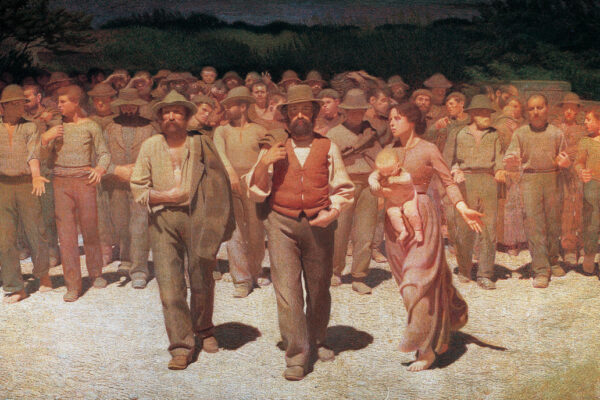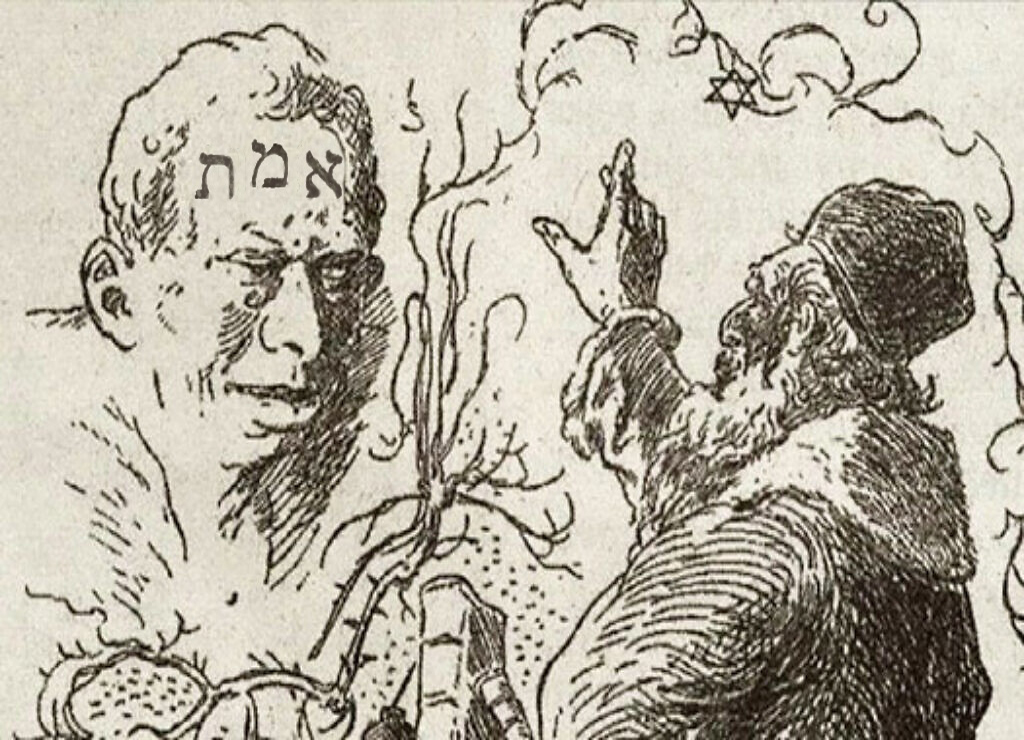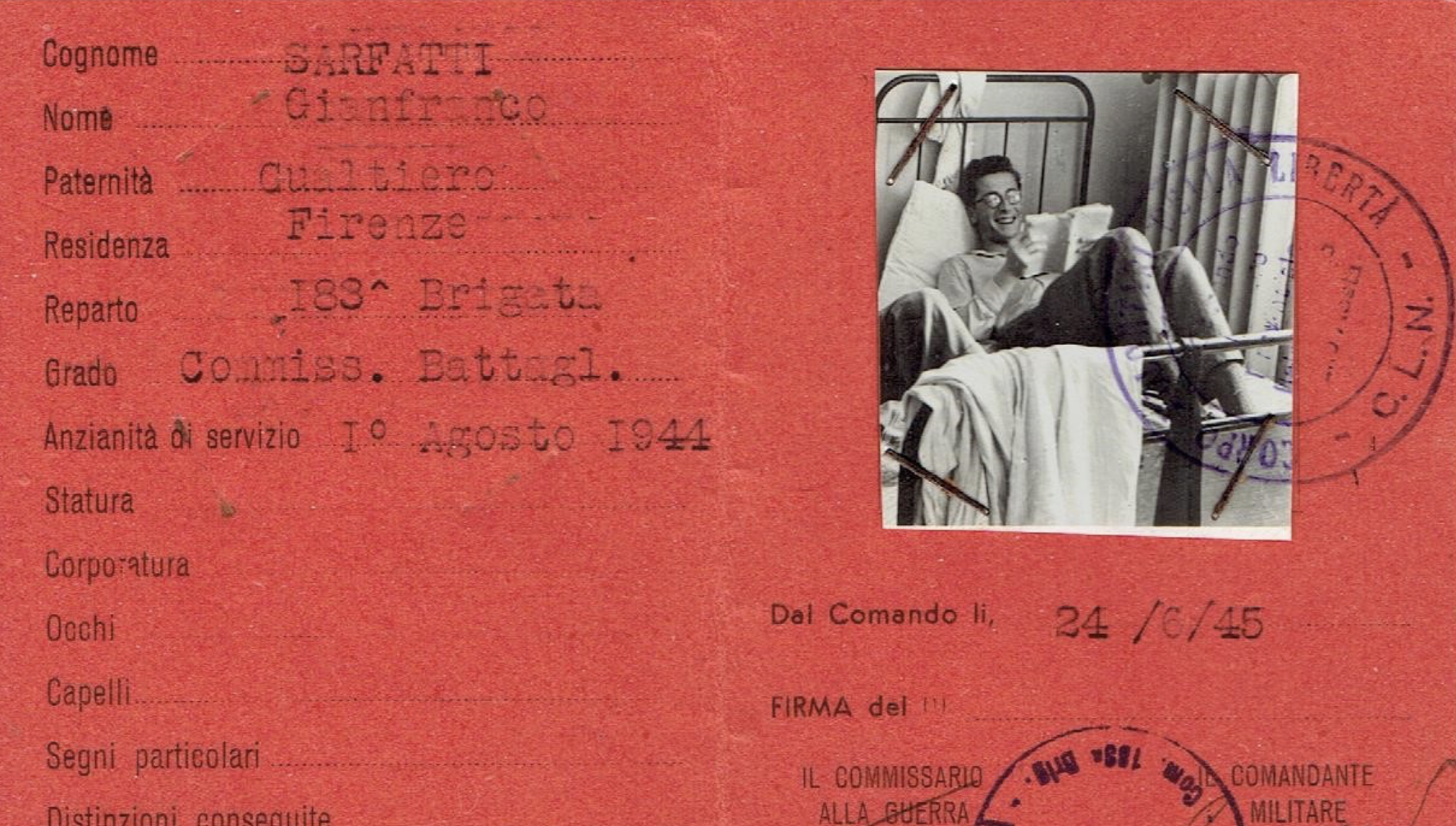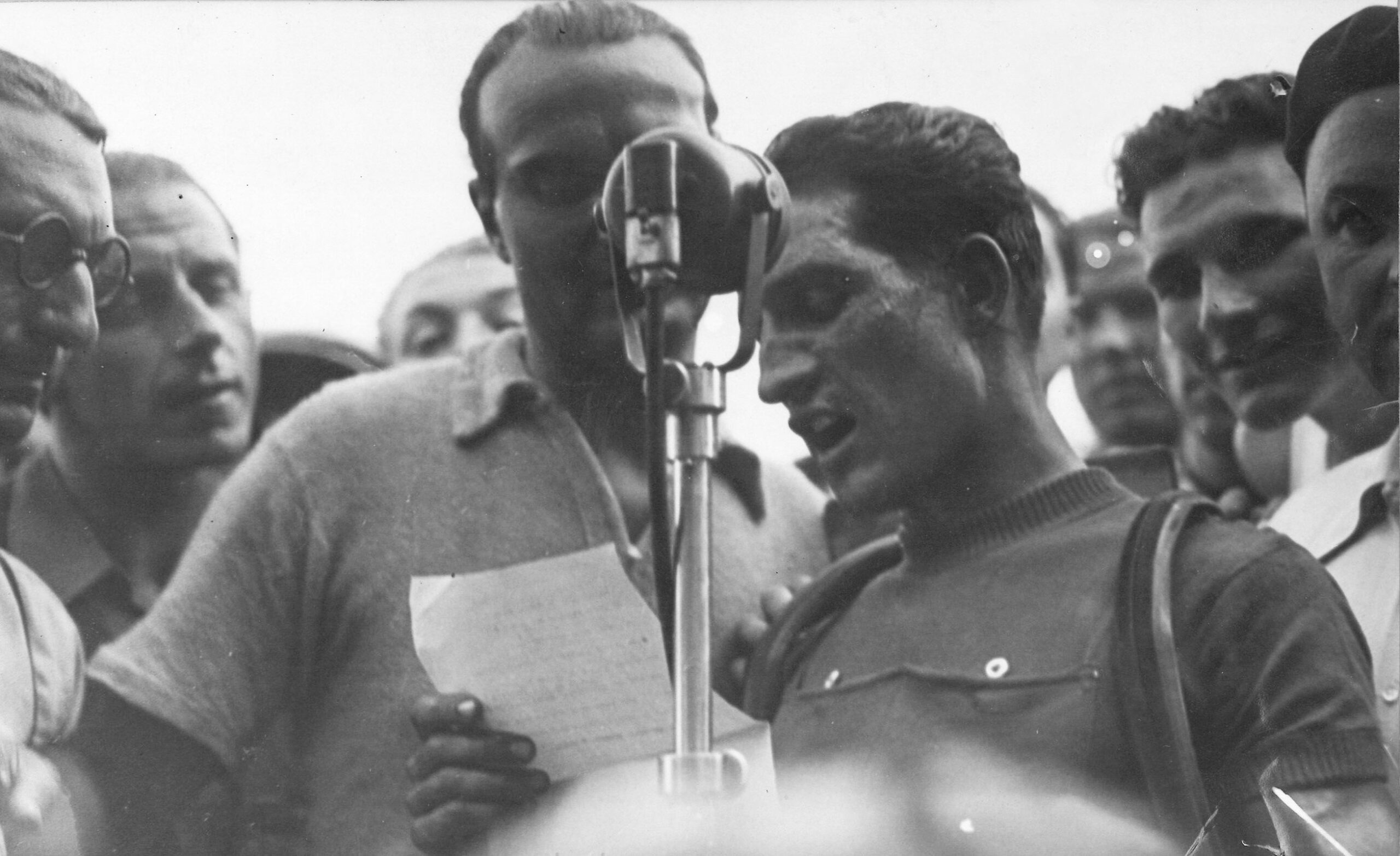The Italian Section of the Voice of America during WWII
Sandro Gerbi (Lima, Perù, 1943) is a historian and journalist. Among his best known books are Tempi di malafede (1999, Comisso prize 2000) and Raffaele Mattioli e il filosofo domato (2002). He curated the publication of his father’s seminal work, La disputa del Nuovo Mondo, 1983 e 2000, (Engl. ed.: Antonello Gerbi, The Dispute of the New World: The History of a Polemic, 1750–1900, University of Pittsburgh Press, 1973, 2010), and two anthologies: Carlo Levi’s Il bambino del 7 luglio (1997) and Guido Piovene’s In Argentina e Perù, 2001. Gerbi is a contributor of the magazine Belfagor and of the cultural supplement of Il Sole24Ore. He co-authored with Raffaele Liucci, Lo stregone. La prima vita di Indro Montanelli (2006) and Montanelli l’anarchico borghese. La seconda vita 1958-2001 (2009). In 2011 he published Mattioli e Cuccia. His latest book is I Cosattini. Una famiglia antifascista a Udine, 2016.
On the evening of January 20, 1944, in Lima, Peru, my father Antonello sat down to write a long letter to his two brothers living in New York – Giuliano, a journalist with the Voice of America, and Claudio, a doctor – giving them a detailed account of the last hours of their father Edmo. Edmo, himself a refugee to Peru, had died of a cerebral aneurism the day before. Antonello had sent his brothers a cable but wasn’t sure if the news had reached them or not. During the evening he turned on the radio to try and listen to Giuliano’s daily broadcast under the pseudonym Mario Verdi. But he heard an anonymous speaker say, “Instead of Mario Verdi’s usual commentary…,” and go on to announce another program. That was how my father knew for sure that Giuliano and Claudio had received his telegram and, as a sign of mourning, had suspended his own broadcast.
Why am I relating this episode? On one hand to explain my own interest in the history of wartime radio broadcasts and, on the other, to underline the effectiveness of the radio medium from the point of view of its listening. Tonight I shall try to illustrate these two complementary aspects by touching on the experiences of two men. Both refugees to America as a result of the 1938 fascist anti-Jewish laws, both held highly responsible positions at the Voice of America during the war: one during the so-called heroic period of 1942-43 and the other after the normalization (which I’ll explain later) of the Office of War Information, of which the Voice of America was a part.
The first of the two is Roberto Lopez (1910-1986), son of the famous playwright Sabatino, who was then a promising scholar and after the war an illustrious professor of Medieval History at Yale. The second is my uncle Giuliano Gerbi (1905-1976). Renowned as a sportswriter and broadcaster in the Thirties, his career was irreparably damaged by fascism, in spite of his later successes at the Voice of America.
Before getting into the story itself, I’d like to recall some of the main points in the history of U.S. radio propaganda after the United States entered the war, on December 8, 1941. President Roosevelt had previously created several different organizations, often in contrast among themselves. It was not until June 13, 1942 that the President decreed the birth of the Office of War Information (OWI), merging four pre-existing government agencies into one sole organism.
Elmer Davis, esteemed CBS commentator, was named head of the new organization, based in Washington. The Overseas Branch, with headquarters in New York, was entrusted instead to the famous playwright Robert E. Sherwood, friend of the President and one of his speechwriters. Subordinate to the Overseas Branch was the Voice of America. Its radio broadcasts (in German, French and Italian) began on February 25, 1942, exactly eighty days after Pearl Harbor.
It must be said right away that OWI was destined to have a troubled existence. This was primarily due to the deep contradictions between the ideals of a ‘just’ war and the crude military necessities, aimed at total victory. It was accused of partisanship as well. The 1942 elections had given control of both Houses of Congress to a coalition of Republicans and southern Democrats, both of whom “viewed OWI as a propaganda agency not for the United States but for Roosevelt and the New Deal.” This led to continual attacks in the local press.
Roosevelt was, of course, aware of all these problems but it was not in his character to assume precise positions. So he refrained – as long as he was able – from getting involved in the disputes which broke out almost every day over OWI, especially territorial rivalries with other sectors of the administration.
Making OWI work in such conditions had become, therefore, a herculean task studded with ‘accidents’. So much so that at war’s end, Elmer Davis, in his Report to the President, wrote that the director of any future propaganda agency would need to possess “the varied abilities of a lobbyist, a traffic policeman, and the impresario of an opera company.”
Roberto Lopez applied for a job at the Coordinator of Information, one of OWI’s predecessors, around the end of May, 1942. He was hired by the Italian Section of the newly created Voice of America on August 16th of the same year.
He had earned his degree in History in Milan and qualified for university teaching in 1936, immediately obtaining a position in History of Economics at the University of Genoa. Barred from teaching after the approval of the racial laws, he emigrated to America in September of 1939 and, thanks to his friend Professor Robert L. Reynolds, found a job as teaching assistant in the History Department of the University of Wisconsin at Madison.
His first boss at the radio, up till the end of 1942, was Carlo Emanuele Prato, who had had similar duties in one of the agencies incorporated into OWI. At that time there were ten employees in the Italian Section: a Prato himself, Alfredo Segre, J. D. Ravotto, Giorgio Padovano, Sergio Funaro, Aurelio Natoli, Leo Wollemborg, Luigi Giovanola, Primo Raddi and Vincenzo Vacirca. Counting Lopez, about 50 per cent were Jewish.
Prato was a socialist with a lengthy journalistic career behind him, spent mostly in exile (Switzerland and Paris). He had long been inspired by antifascists Gaetano Salvemini and Carlo Sforza, the latter having been Foreign Minister prior to the advent of fascism. At the beginning of 1942, however, Prato had begun to cross swords with his former spiritual fathers, in particular with Salvemini who criticized him for serving the Americans and their foreign policies. The same criticism could have been leveled at Lopez, who, however, saw nothing inconsistent with his antifascist principles in working for OWI: at least as long as he was allowed to attack, not only Mussolini and his gang, but Vittorio Emanuele III as well.
Here I shall skip over – as I’ve already written about them elsewhere – all the attacks levelled at the Italian Desk by antifascist Italians in America. There is no evidence that Lopez was touched by them in the slightest. He had to have known about them and yet he never mentioned them during our conversations. He talked to me instead about his particular job. Lopez didn’t talk on the radio himself, he wasn’t a speaker. He wrote news and feature stories which others read in front of the microphone. The amount of work was overwhelming. Newly hired, he drew the night shift for 54 days in a row. The Overseas Branch office of the OWI had recently been transferred, in the middle of summer 1942, to the corner of 57th Street and Broadway.
By January of 1943, the New York offices of OWI employed around three thousand people, over a fifth of whom were foreigners. Most of the latter worked in the foreign sections of the Voice of America. At the time the VOA turned out approximately a thousand programs a day in twenty-seven different languages. It was a Babel, the dominion of John Houseman (1902-1988), the famous theater director and producer, who left us one of the most vivid descriptions of the ‘heroic’ period of the VOA.
The Italian Desk (or Service) – recalled Houseman in his memoirs – was the third largest, after the French section (although the French “did not distort the news, as the Italians did”) and the German one. At the time of the Allied landing in Sicily (July 10, 1943), it employed about seventy people who were a constant source of entertainment and exasperation. From the start they resisted all attempts to bring any semblance of American journalistic efficacy into their broadcasts, The idea of broadcasting items as they received them from the News and Control Desk was utterly repugnant to them.
Houseman continued:
In addition to the deep, chronic disagreements, personal and political, between recent expatriates and Italians long resident in the United States, there was constant friction between those who reluctantly accepted U.S. Government policy and those who followed the divergent lines of various local Italian groups. In fact, there was more attempted interference with Italian broadcasts than with those of any other nation – except the Poles. In other words, an animated hotbed of nerves.
And so we arrive at a date crucial to Italy’s history: July 25, 1943, with the fall of Mussolini and Field-Marshal Pietro Badoglio named prime minister in his stead.
That Sunday Roosevelt was at his cottage “Shangrila,” about sixty miles north of Washington, with two of his closest advisors, Sam Rosenman and the above-mentioned Bob Sherwood, director of OWI’s Overseas Branch. They were working together on a speech for the president. The late-afternoon quiet of the sylvan retreat was suddenly shattered by a telephone call from Steve Early, Roosevelt’s press secretary, announcing the dramatic Italian news heard, however, on the not-always-reliable “Radio Roma.”
Only that evening was the news definitely confirmed. After returning to Washington, Roosevelt made a call to Churchill (it was the middle of the night in London) who was able to explain exactly what had happened.
Some hours earlier, unaware of the events taking place in Italy, Roberto Lopez, who had by then been promoted to “script editor,” was strolling along 42nd Street. On that hot July Sunday he was off-duty. As usual when he arrived at Times Square, he glanced up at the neon billboard to check out the latest headlines. There he saw the electrifying Italian news and ran headlong all the fifteen blocks to his office.
The Voice of America offices were complete bedlam. How to react? The fact that it happened on a Sunday made communication with the State Department difficult and directives about Italy were unclear. The latest, approved on February 21, 1943, stated: “‘Fascism’ includes not only Mussolini and his political and military accomplices, but the House of Savoy, which betrayed Italy to Fascism, and the industrialists who support Fascism.” Likewise, the joint message issued by Roosevelt and Churchill on July 17 could be interpreted the same way.
As Sherwood was absent, his second-in-command James Warburg, of the banking family, took on the full responsibility of deciding. In his instructions he gave orders to treat the event “coldly and without any jubilation,” since in any case it made no difference “whether Mussolini or Badoglio or the King hold the leadership.” The intrinsic ambiguity of American foreign policy allowed the liberal approach to prevail, thus forcing OWI into a rather delicate position.
So it was that, on that fateful evening of July 25th, Lopez considered himself fully authorized to harshly attack Vittorio Emanuele III: “Badoglio’s proclamation exhorts Italians to gather in support of the emperor-king. The king was made an emperor by Mussolini and by Badoglio. The Italian people were not consulted. The Italian people are not involved”.
Yet the Voice of America went even further, with an episode that is rather well-known today. On that same evening, Warburg decided to broadcast several passages from a radio commentary pronounced shortly before by the famous New York Post columnist, Samuel Grafton:
Fascism is still in power in Italy. Italy has put on a new face, that’s all. Italian Fascism has rouged its cheeks and its lips and is trying to see whether a smile will not do more for it, than the famous frown by which it lived so long.
The moronic little king who has stood behind Mussolini’s shoulder for 21 years has moved forward one pace. This is a political minuet and not the revolution we have been waiting for.
Bitter words indeed, which Warburg meant to be broadcast only once, and only in English. Instead, the text was mistakenly transmitted six times, which probably allowed a news leakage. Consequently, on July 27, Arthur Krock, the New York Times Washington correspondent and fierce critic of Roosevelt, levelled a front-page attack on OWI, accusing it of having established its own autonomous course of action with regard to Italy and sabotaging any future negotiations with the king and Badoglio.
OWI was in trouble. On the afternoon of that same July 27, Roosevelt called a press conference and declared that neither he nor Sherwood had authorized the offending broadcast. On top of that, Churchill had just informed the American President that he himself “would deal with any non-fascist Italian Government which can deliver the goods.” In other words, sign an act of surrender.
After some hesitation on Roosevelt’s part, this debatable approach was promoted in another press conference on July 30, in which he manifested his willingness to negotiate with any non-fascist, “be he a King, or a present Prime Minister, or a Mayor of a town, or a village.”
With this, the Voice of America was being called to order: forsaking its ‘strategy of truth’, and submitting the liberal ideology, prevalent among leaders of the time, to the demands of wartime military and the more moderate spheres.
One can imagine Lopez’ distress in such a situation. During the month of August he still managed to get a few anti-monarchical and anti-Badoglio thrusts past the censors but by now even this tentative approach had become virtually impossible. A drastic choice loomed which came to fruition on September 8, 1943. At news of the the armistice, Maurice English, head ever since spring of 1943 of the Italian Section (after poet Morris Bishop’s brief tenure), chose Lopez to write the main article. As he gave him the raw material which had arrived from Washington, English ordered: “See that we translate literally: ‘today Italy surrendered.’” To which the adamant Lopez replied: “Fascism has surrendered, not Italy!”
English’ repeated insistences that the orders from Washington be carried out met with no success. Lopez’ resignation became a foregone conclusion.
Not long afterward, Yale University welcomed the future historian and author of the famous The Birth of Europe with open arms: he remained there for the rest of his life.
By coincidence, Giuliano Gerbi arrived on the scene just as Lopez left it and the turbulence at OWI subsided. His curriculum was quite different from Lopez’. Five years older – he was born in 1905 –Gerbi had graduated from Bocconi University in Milan with a degree in Economics. He had a lengthy career as a sportswriter behind him: not only was he a sportswriter and correspondent for the Milanese newspaper L’Ambrosiano, specializing in cycling, tennis and skiing, but since 1931 he had been a sportscaster for EIAR, forerunner of RAI, as well. In 1938 he gave the EIAR live commentary of the ‘Tour de France’, won by Gino Bartali. His voice was well known in Thirties Italy. A brilliant future in radio broadcasting would have been his, had it not been cut short by the passage, in autumn of 1938, of the anti-Jewish laws.
From that moment on, Gerbi’s peregrinations began. Paris, New York, ever-more uncertain jobs, a year at a bank in Colombia. Finally in 1941 he came back to the United States, first in Boston and then in New York, to be near to his brother Claudio, a doctor, himself an emigrant to the US. In the Big Apple, Giuliano had taken up broadcasting once again, first at WHOM and later, in 1942, at WOV as “Chief of the newsroom and Italian announcer.” During the same period he also collaborated with NBC.
WOV was a private radio station which broadcast mainly in Italian. After the USA entered the war it was closed down because of its not-undeserved reputation as a den of fascists and only reopened after a vigorous purge of its most compromised elements. The first change in his circumstances came in the summer of 1942 when OWI gave him his first contract as “Italian staff announcer”, and, in November of the same year, another one as “announcer.” At the same time he was still working for both WOV and NBC. After September 8, 1943 came the definitive move. In a plan to increase its hours of Italian-language programming, the Voice of America offered him a daily commentary which went on the air for the first time on September 27, 1943. Thus began the broadcasts of “Mario Verdi,” the radio pseudonym assigned (with a striking lack of imagination) to him by OWI. His was the only ‘autographed’ program in the entire Italian Section of the VOA. It went on the air twice a day, every day (except, in its first months, on Thursday).
In an autobiographical note from the Sixties, Gerbi himself described his typical working day:
My daily commentary went on the air at 15:45 New York time, corresponding to 21:45 Italian time, but I remember that in spite of that my “piece” […] had to be ready, barring any last-minute additions or changes, by 10 o’clock in the morning. If 15:45 was “air time,” there was a rehearsal or run-through at 15:00, during which I had to read the “piece” in front of a “director,” who more often than not understood very little Italian, and, before that the piece had to go to the “ditto room” to be duplicated, and then […] it had to undergo a “military control” and a “political control;” and before the control it had to be translated into English.
At that time I was living in New York, at 53 East 54th Street, three blocks from WOV. Thinking back to those days I can’t imagine how I managed to carry on for weeks and months sleeping 55 minutes out of every hour and waking up, systematically, at the stroke of every hour in order to listen to the “news” transmitted by the radio all night long.
Since I continually listened to the “news” for five minutes every hour, I was always on top of the situation. Once I had formed a general picture of the latest developments, I got up at 5:30 and by 6 I was already at WOV, where I found all the stories on the teletype in the newsroom from the three major American agencies, AP, UP and International News Service. I digested them, usually finding confirmation of what I had already heard on the radio during the night, and sat down at the typewriter. In an hour and a half my “piece” was written, and by 8 o’clock in the morning, before I started my normal job at WOV, I handed the manuscript to a VOA messenger who came over regularly to get it. I met up with my “piece” again in the early afternoon when I left WOV on the corner of Fifth Avenue and 57th Street and walked the few blocks to the Voice of America headquarters at the corner of 57th Street and Broadway.
Once his piece had passed all the political and military censorship, Gerbi could finally go on the air. And, after so much scrutiny, everything went smoothly in comparison to Lopez’ time. Little by little, Giuliano became more proficient and his program more popular. Evaluations by his bosses were always “excellent.” Duties and salary improved. On January 16, 1944 he went from “announcer” to “script editor,” and on August 1, “radio commentator,” which meant that he was also in charge of inspecting his colleagues’ texts, which were often written in rather poor Italian.
Vivian, Giuliano’s daughter, has preserved in the family archive in Milan typewritten copies of all of Mario Verdi’s commentaries, including cuts made by the censors. Perhaps a copy of the texts themselves may be found in the National Archives where twenty or so of Giuliano’s recorded broadcasts have been saved. Before I go into the content of these commentaries and how they evolved over time, I should like to recall a letter my father Antonello, who as I mentioned above was a faithful listener from Peru, wrote to his brothers from Lima on February 7, 1944:
I’ve listened to our Giuliano many times, during vacation and again yesterday, Sunday […]. His diction seemed simply perfect to me (and much better than what I remembered from Milan): clear, well-cadenced yet not singsong, without the slightest uncertainty or slip of the tongue […]. [Speaking of his accent] it is pure, and there is a certain ‘airiness’ about his words as if, instead of reading, he were actually conversing. The tone is just right, serious and confidential. In short, I am not at all surprised that he is so appreciated by his various bosses. As far as the contents are concerned, I realize that he doesn’t have much freedom of choice; there is a bit too much cheap propaganda, which I doubt is really good propaganda, precisely because it is cheap. I hope his listeners recognize that the fight is neither easy nor already won. And perhaps – the average Italian listener should be considered fairly intelligent – a touch of humor, or self-irony, or even a serene bitterness would not be out of place. But here I see that I am criticizing, not Giuliano, but his spiritual directors.
Now we come to the contents themselves of Giuliano’s broadcasts which, as his brother had pointed out, were largely dictated by the directives he received. Little by little, however, his comments became more refined, his journalistic experience had the better of political restrictions and his popularity grew, even though it would never reach that of his colleagues at Radio London. Technically his programs were transmitted to London via shortwave and then re-transmitted to Italy by medium wave which gave far better reception. This was borne out by the ever-increasing number of letters which Gerbi received, from Italian prisoners of war as well as from his fellow countrymen, especially after the Allied landing in Sicily, in July of 1944. By the last year of the war, Gerbi was receiving hundreds of letters a month, some of which he answered on the air.
His broadcasts were all structured the same way. An announcer signaled that Mario Verdi’s program was about to go on air. Then the same announcer or Giuliano himself, from time to time, read a summary of the main news stories from the various war fronts (this was repeated at the end). Then came fifteen minutes of commentary by Mario Verdi which, although at the beginning more oriented towards bare facts, became over time more and more elaborate and full of opinions which naturally reflected the official policy of the American government. It was all well put together, with a good sense of rhythm and a growing show of familiarity with Italian affairs.
From the end of September 1943 to the liberation of Europe in May of 1945 (and afterward as well, although it doesn’t interest us here), Mario Verdi followed the main events of the war and international politics step by step, strictly adhering to the directives regarding Italy. On the other hand, he had free rein when it came to constantly denouncing Hitler and the atrocities that his German soldiers were committing, even against civilians. It is important to remember that this was the period of time after El Alamein and after Stalingrad, a period of increasingly heavy losses for the Nazis.
Verdi underlined the age-old hatred of Italians for the Germans. He showed gratitude for those Italians who helped Allied prisoners to escape. He evoked important anniversaries, like October 19, 1812, when Napoleon began his retreat from Russia. On October 29, 1943 he announced the end of the New York blackout, as threats of a German invasion had ceased. He said repeatedly that fascists and nazis would have to undergo a severe purge at war’s end and that Italy would be allowed to choose its future government on a democratic basis. He never tried to hide the losses and difficulties of the Allies as they battled their way up the Peninsula. He criticized the errors of American isolationist policy prior to Roosevelt. He supported both Italian and Yugoslavian partisans (he would always refer to them as “patriots”). He was enthusiastic about the decision to let Italian soldiers fight side by side with the Allies (“co-belligerency”).
On Christmas day, 1943, he recalled the festivities in warm tones:
The feeling of nostalgia for days gone by is alive today more than ever. Nostalgia for fireplaces with crackling logs. For the joyous pealing of the church bells. Nostalgia for chestnuts, for ricotta cakes, for panettoni, for good wine from our own vineyards. For traditional dishes, for the sounds of bagpipes and fifed. For dances in costume. For serene and smiling faces. Nostalgia above all for Peace (December 19, 1943).
It would have been hard for people to imagine that they were listening to a Jew forced into exile by the fascist regime.
Just as unlikely for us today was the celebration of Stalin’s birthday:
Today Marshal Stalin is 64. It is perhaps the happiest birthday of the Soviet Statesman’s entire political and military life. The most sumptuous gift has come from his soldiers. The most gratifying reward for him is the consciousness that he has done everything in his power for the good of his Country. His talents had already manifested themselves through his policies in times of peace. Through an intense campaign to raise the spirit of the Russian people, to give this people, enslaved by the Tsars, the awareness of their own national strength (December 21, 1943).
There are far too many such examples to mention all of them here. The documents are available to scholars wanting to consult them. I should like to mention at least one broadcast, dated July 17, 1944, in which Gerbi narrates the liberation of the city where he spent his childhood, Livorno. In the early Eighties, one of his schoolmates, the “livornese” Jew Laura Castelfranchi recalled:
I’ll never forget how moved I was on July 19 [recte 17], 1944 when, in hiding in the Versilian mountains, I heard Giuliano Gerbi, who […] announced the liberation of Livorno evoking the Quattro Stagioni school where he had studied.
She had actually recognized, in the voice of Mario Verdi, her old schoolmate, Giuliano. Yet it probably wasn’t so very hard to recognize him if we listen to Mario Verdi’s own words:
Italian listeners, good evening. […] Many memories link me to Livorno. Several tombs, in a cemetery outside the walls, on which I hope one day to be able to place a flower once more; the classrooms of the elementary school “Quattro Stagioni” and those of the “Guerrazzi” gymnasium where I spent several years of my early youth, the “Fides” club where Beppe Nadi, father of the Olympic champions, taught me fencing, the “Baracchina” in Ardenza where I had the best ice cream of my life and hundreds and hundreds of others.
Now it is time to draw some conclusions about what we’ve said up to now. In order to describe the two phases of the Voice of America there is no better way than to delve into the above-mentioned Report to the President, written in 1945 by OWI director, Elmer Davis. Davis writes: an information agency [OWI], in a war which was in some of its aspects ideological, naturally attracted many free-lance writers and others who had been used to working by themselves and had always jealously cherished their personal integrity and freedom of expression. Such a man is very apt to insist that he must proclaim the truth as he sees it; if you tell him that so long as he works for the government he must proclaim the truth as the President and the Secretary of State sees it, he may feel that this is an intolerable limitation on his freedom of thought and speech. In that case, he must go. As happened in the case of Roberto Lopez and many others.
Yet their initiative, their imagination, their passionate conviction (if only it could have been channeled) were all qualities that OWI needed, and was poorer without.
All these concepts fit the Lopez “case” perfectly. But Elmer Davis concludes – and we with him – by expressing an opinion which match the Gerbi case even better:
The more credit is due to the many other men and women of that type who were able to subordinate their personal feeling, when occasion required, to the national interest, and who gave us outstanding service as members of the team.








